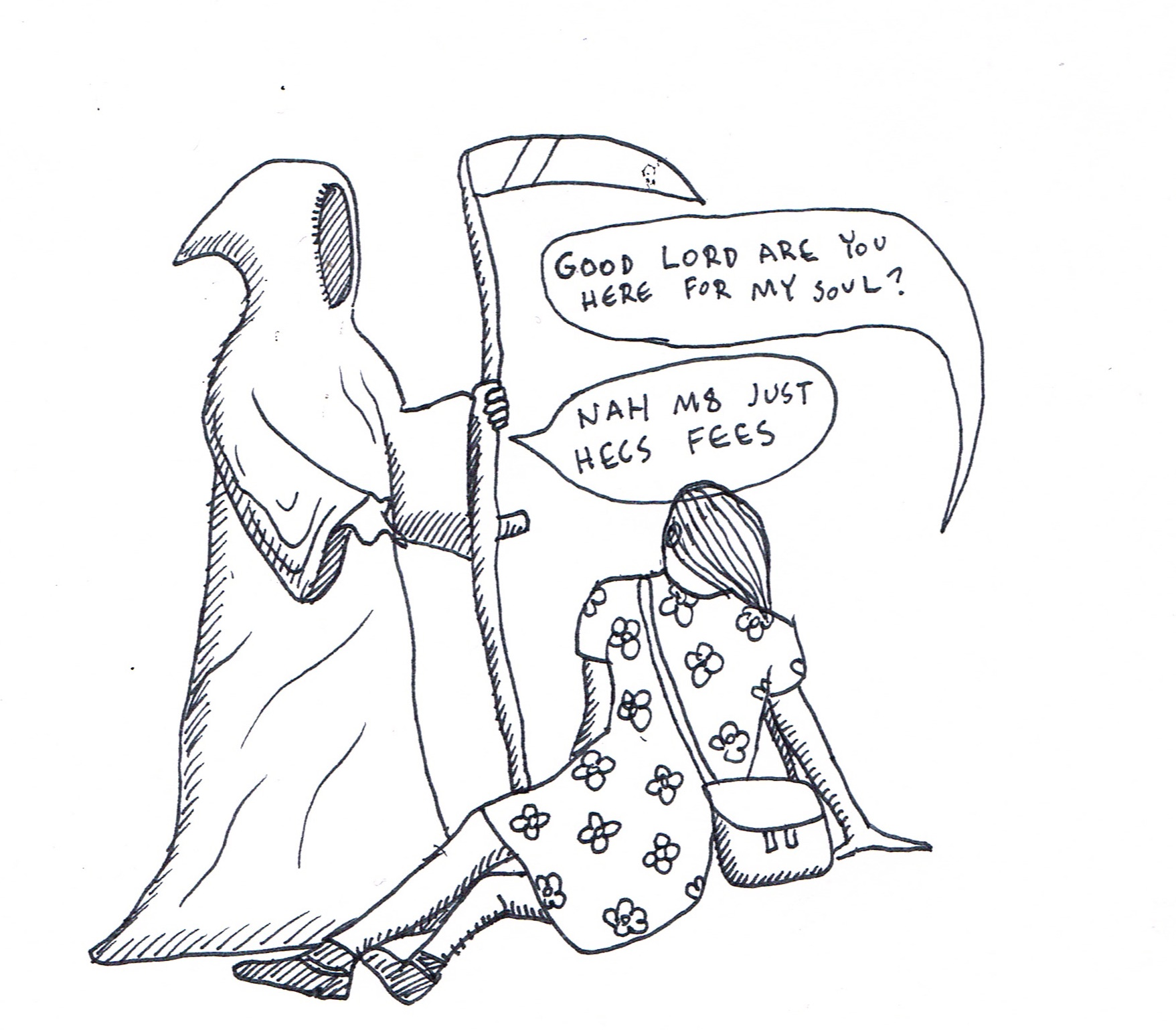The memory of the 2014-15 budget, with its severe cuts and confusing contradictions, has left its mark in the minds of many of us due to the ominous implications of the higher education course fee deregulation it proposed. A lot has changed in the years since, with the apparent timidity of the new Turnbull-led government which has not only lead to notably less cigar-chomping but also a much more mild, voter-conscious budget that is keenly aware of the political mileage that Labor got out of its disastrously austere forebear. What does this mean for students and universities? The answer is bloody confusing.
First off, the part that appears to be good news: the government has released a discussion paper with the amusingly Turnbullian name of “Driving Innovation, Fairness and Excellence in Australian Higher Education” (INNOVATION!!) which states that “the Government will not be implementing fully flexible course fees as proposed in the 2014-15 budget reforms.” This is due to “community concerns about the perceived cost of potential higher education fees” which is a governmental euphemism for “there’s an election coming and we’re terrified about losing votes on this.” This is a defeat for UWA’s admin, which as a part of the Group of Eight lobby group pushed the Abbott government to deregulate course fees in the first place.

This isn’t the full story however, as the government has also put forward a particularly vague proposal that will allow courses that are deemed particularly “innovative” to be deregulated. Such courses would be monitored by the Australian Competition and Consumer Commission – but the way this “monitoring” would occur hasn’t been outlined. Overall the vague nature of this aspect of the budget leaves the possibility of wider deregulation open once public concern dies down.
While it’s now clear that full deregulation is unlikely, other areas of the budget paint a much less shiny picture for students. The main point of contention is the projected $2 billion in savings from the higher education sector with little explanation about how this is to be achieved. Such measures as collecting HECS debt from deceased students or the indexation of loan repayments are on the table. This “sustainability measure” begins with $601 million in cuts for 2018-19 and $868 million in 2019-20 – a move that’s essentially the same as 2014 proposals albeit without deregulation.
With both cuts to university funding and an end to talk of deregulation, this budget is bad for students and even worse for Vice Chancellors (shed a single tear for PJ). For students the full implications of cuts aren’t yet clear and it’s likely that the real problems will arise in the ways Universities try to recover lost government funding from their students. The budget also shows that future changes to HECS are likely if the government is going to reach its savings goals.
This is all assuming that the government is able to pass anything through the senate anytime soon – and with the looming double dissolution election, anything is possible.
Words by Hayden Dalziel

